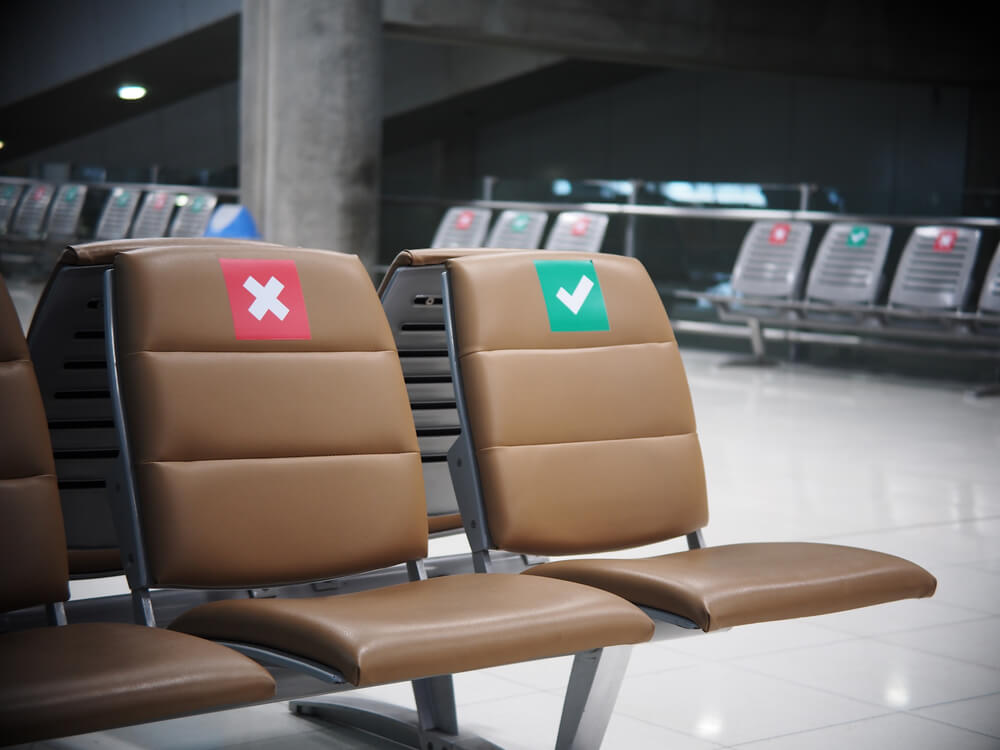To curb the spread of the novel coronavirus in the U.S., the federal government imposed travel restrictions and lockdown measures in 2020. As a result, most American companies urged their employees to work remotely for safety purposes. Although the government did not entirely ban traveling, especially for essential workers and short-distance travelers, it required them to strictly adhere to the stipulated hygiene and safety standards. For instance, the Centers for Disease Control and Prevention (CDC) recommends wearing face masks and maintaining social distance during traveling.
Keeping this in mind, here are other COVID-era travel changes that are here to stay.
-
Workcations
Due to the surge in remote working, American employees can now work from anywhere, even if they are on vacation. This trend is likely to remain after the pandemic considering that at least 16% of employees intend to keep working remotely post-COVID-19, according to the Harvard Business School (HBS). Because of this, employees will be able to go on vacation and have fun even during working days or weeks. While at it, they will still be able to submit their assignments on time, complete tasks, and keep working for their companies. Even better, most hotels have WIFI and video-conferencing tools, which can be used by employees to attend corporate meetings and communicate with their bosses while on vacation.
-
Hygiene Standards on Planes
Before the pandemic, there were always concerns about airplane cleanliness and hygiene. While this was true considering the many people boarding the planes, the COVID-19 pandemic has changed the narrative. To slow the spread of the virus, the hygiene standards in planes are now top-notch. This not only minimizes the spread of COVID-19 but also keeps travelers safe from other viral and bacterial infections. As such, airlines will most likely maintain these hygiene standards after the pandemic, save for social distancing and wearing masks.
-
Reduced Business Trips
Every year, Americans go on at least 400 million long-distance business trips, according to the U.S. Bureau of Transportation Statistics (BTS). However, the pandemic-prompted travel restrictions and safety concerns made it known that it is possible to attend a business meeting without necessarily being physically present. This led to a significant decrease in the number of business trips made as people opted for video conferencing. Considering the convenience and cost-saving that comes with remote meetings, fewer people will most likely travel for business after the pandemic, unless it is a must.
-
Increased Flight Booking Through Airline Websites
In 2020, U.S. airlines canceled a lot of flights due to COVID-19. Usually, the airline is supposed to refund you if you cancel your flight. However, most of those who booked their flights through third-party sites did not receive refunds, according to an article published in the Wall Street Journal (WSJ). As such, more travelers have now embraced making online flight bookings through the airline’s website as opposed to using third-parties for convenience purposes. After the pandemic, the number of online flight bookings will not only increase but also be channeled through official airline websites. This is because people have now understood the woes that come with using third parties in booking flights.
At the height of COVID-19, the American travel industry made some changes aimed at preventing the spread of the virus. However, some of these changes, especially the ones discussed in this article, will likely remain in the post-COVID-19 era. Are you looking for the right travel insurance to cover you while you travel during and after the pandemic? Contact the insurance professionals at Donald Weiss Insurance Services to have an expert customize a great travel policy that includes cancellation coverage.

